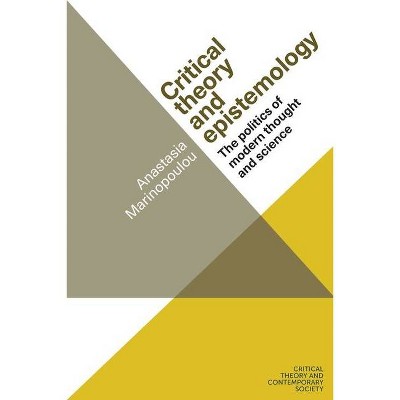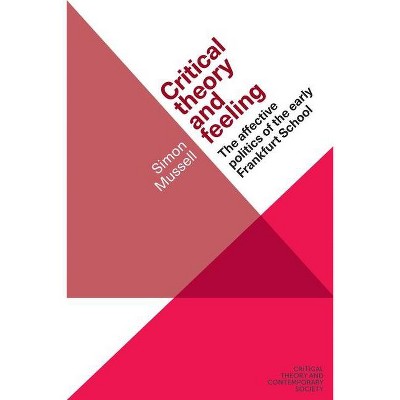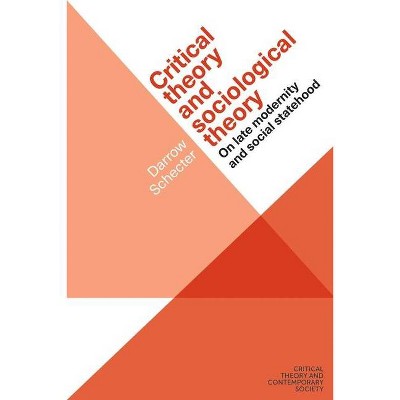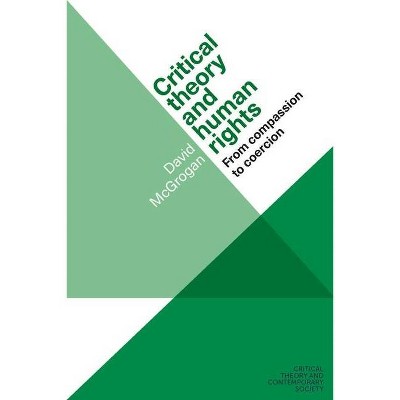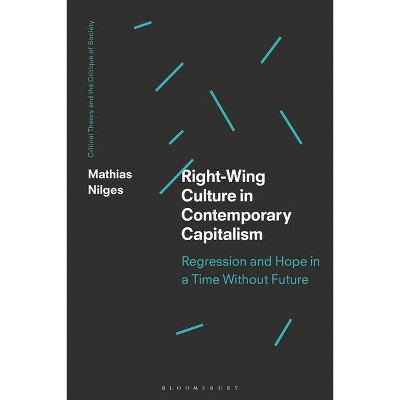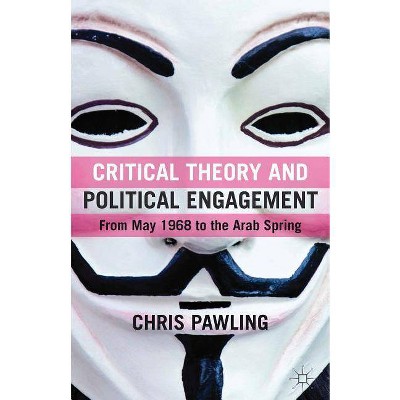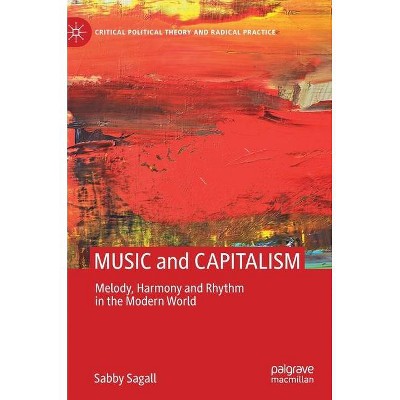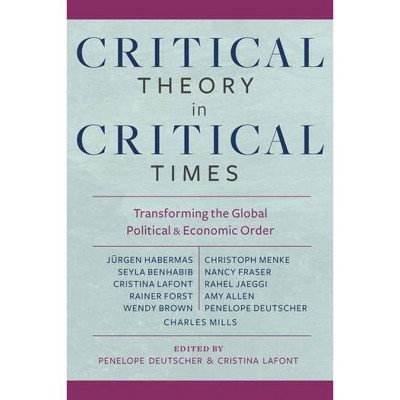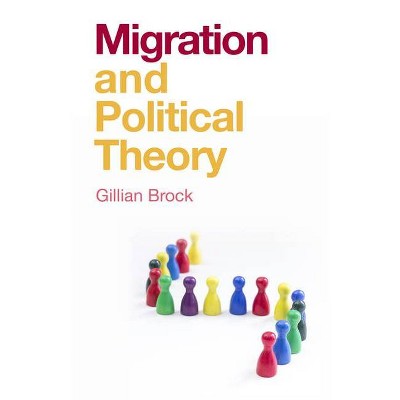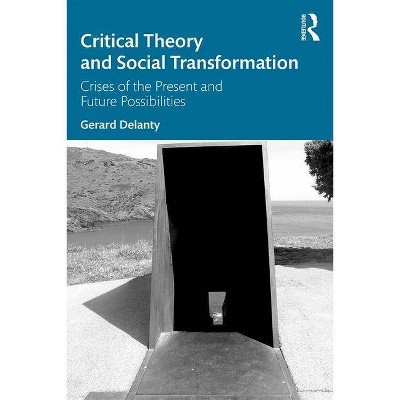Critical Theory and the Critique of Political Economy - (Critical Theory and Contemporary Society) by Werner Bonefeld (Paperback)
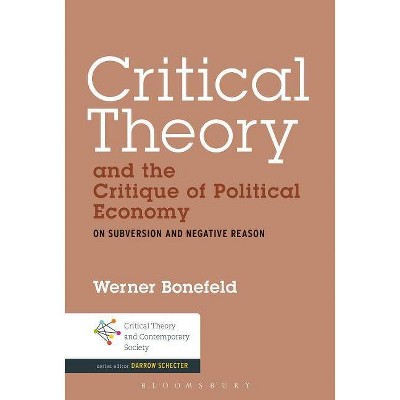
Similar Products
Products of same category from the store
AllProduct info
<p/><br></br><p><b> Book Synopsis </b></p></br></br>Subversive thought is none other than the cunning of reason when confronted with a social reality in which the poor and miserable are required to sustain the illusion of fictitious wealth. Yet, this subsidy is absolutely necessary in existing society, to prevent its implosion. The critique of political economy is a thoroughly subversive business. It rejects the appearance of economic reality as a natural thing, argues that economy has not independent existence, expounds economy as political economy, and rejects as conformist rebellion those anti-capitalist perspectives that derive their rationality from the existing conceptuality of society. Subversion focuses on human conditions. Its critical subject is society unaware of itself. This book develops Marx's critique of political economy as negative theory of society. It does not conform to the patterns of the world and demands that society rids itself of all the muck of ages and founds itself anew.<p/><br></br><p><b> Review Quotes </b></p></br></br><br><p>"Bonefeld successfully both reveals the supposedly innate contradictions of a system that is imposed externally on us and succeeds in dissecting the most pivotal contradiction, that is, how our own labor is simultaneously organized as concrete and abstract labor." - <i>Critique </i> <p/>"Bonefeld's most accomplished work to date, and certainly represents a definitive statement on critique, negative dialectics, and Open Marxism ... a book which sets out his own unique vision of Marxism as Critical Theory that "moves" in reflexive and dialectical engagement with its definite subject matter: political economy and the inherently antagonistic social constitution of capital ... Critical Theory at its intelligent, robust and challenging best-argumentation this book delivers from cover to cover." --<i>Antipode</i> <p/>"Exactly the kind of book we need ... We need a conceptual comprehension that sharpens and focuses our experience. We do not live in a world in which the abolition of capitalism seems imminent. In such conditions, especially when a thinker breaks through old theoretical integuments, the obligation is towards the very critique and critical theory that animates this book." --<i>Mute</i> <p/>"Compelling and persuasively argued account of the tasks with which critical theory is faced today, and of the failure of the larger part of Marxist theory to date adequately to address those tasks ... The book represents what is perhaps the most sustained and comprehensive exposition of the critique of political economy from its at times incipient formulation within Marx's oeuvre." --<i>Marx and Philosophy Review of Books</i> <p/>"A very rewarding read. It brings together a large array of ideas and provides devastating critiques of both capitalism and some of its Marxist critics. The book will no doubt appeal to those most associated with left communist ideas. That said, in a period where criticisms of capitalism have taken on no more than a dismal rejection of it as an unfair system ran by elites and corporations, I feel it is a must read for any person who considers themselves Marxist or anti-capitalist. Werner Bonefeld restates the fundamentals of the critique of political economy and provides us with a highly engaging and important piece of work." --<i>The Project: A Socialist Journal</i> <p/>"Is Marx is an economic thinker? Bonefeld's lucid and original reading answers this question in the affirmative ... In an age when much of what passes as communist thought and practice is either the ossified dogmas of the past, or moralistic denunciations of the abstractions of wealth and finance, this book should, despite its density, act as a wake-up call to anyone who hopes for a reinvigoration of the anticapitalist left." --<i>Review31</i> <p/>"In this important contribution [Bonefeld] uncovers within the critical theory of the Frankfurt School the foundations of a new and powerful reinterpretation of Marx's critique of political economy. ... The book concludes that, rather than seeking scapegoats or imaginary futures, we should embrace uncertainty and strive to change our lived experience." -<i>Political Studies Review</i> <p/>"Werner Bonefeld's outstanding book revitalizes the best tradition of critical theory, which he proficiently combines with the critique of political economy and new readings of Marx. Bonefeld's book is essential for anyone who wants to understand the inverted world of capitalism and to fight its barbarism." --<i>Massimiliano Tomba, Dipartimento di Scienze Politiche, Università di Padova, Italy</i> <p/>"Bringing together Adorno's <i>Critical Theory</i> and Marx's <i>Critique of Political Economy</i> sheds rather new light on basic concepts of Marx's <i>Critique</i> like the law of value, class, and state, and allows Werner Bonefeld to leave the usual roads of discussion travelled over the last four decades. This becomes clear not only when the relationship between economic law, labour, action, and force is discussed but also when the anti-capitalist implications of this approach are developed. This book is really a big step forward in the discussion of capitalism and its critiques." --<i>Michael Heinrich, University of Technics and Economics, Berlin, Germany and author of An Introduction to the Three Volumes of Karl Marx's Capital</i> <p/>"Werner Bonefeld is one of the most rigorous and uncompromising critics of capitalism writing today. This book criticises and carries forward the most advanced thinking on critical theory and the critique of political economy. A must, a delight." --<i>John Holloway, Professor of Sociology at the Instituto de Ciencias Sociales y Humanidades in the Benemérita Universidad Autónoma de Puebla, Mexico.</i> <p/>"Reclaiming the Marxian critique of political economy for critical theory, Werner Bonefeld reveals an overlooked trajectory of the Frankfurt School leading from Adorno to 'the new reading of Marx.' Bonefeld pushes 'the new reading of Marx' to recognise the class structure enforced by the state's 'law-making violence' that underlies the law of value. Critical theory needs to be anti-capital, Bonefeld argues, and he makes good on that subversive demand with a critique of economic categories that exposes the social sources of 'the dazzling spell of the world of value.' Bonefeld writes at the frontiers of the renewal of critical theory as the critique of political economy." --<i>Patrick Murray, Creighton University, USA, and author of Marx's Theory of Scientific Knowledge</i></p><br><p/><br></br><p><b> About the Author </b></p></br></br><b>Werner Bonefeld</b> teaches in the Department of Politics at the University of York, UK. His work contributed to the development of the internationally recognised Open Marxism school.
Price History
Price Archive shows prices from various stores, lets you see history and find the cheapest. There is no actual sale on the website. For all support, inquiry and suggestion messagescommunication@pricearchive.us
